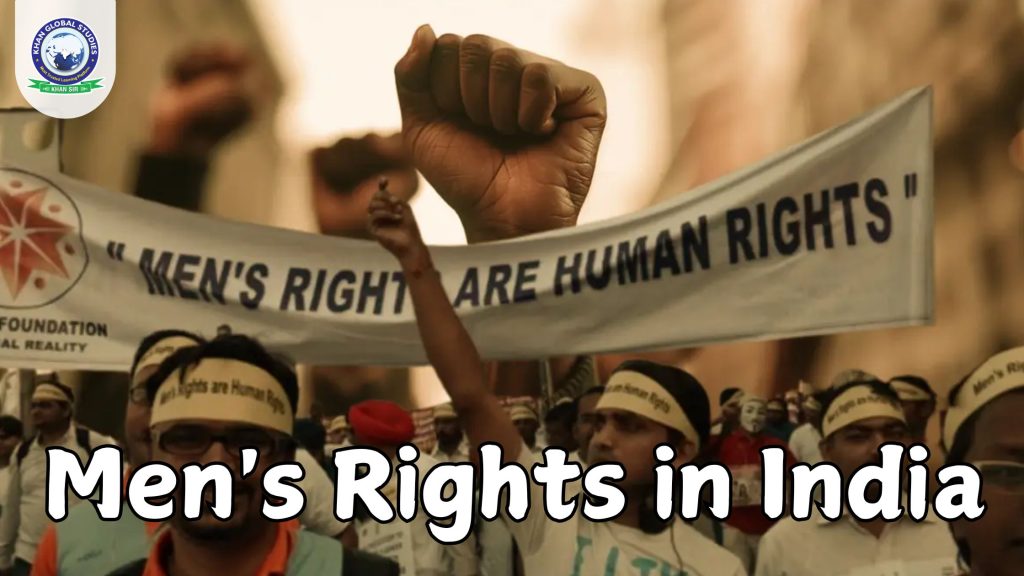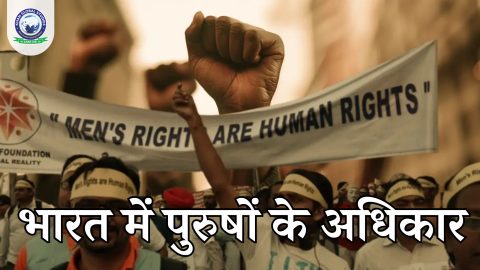Men’s Rights in India remain an often overlooked topic in social discussions. While women’s rights are widely debated and advocated for, men’s issues receive significantly less attention despite being just as important. Social norms and existing legal frameworks sometimes put men in a vulnerable position, leading to calls for gender-neutral laws. In this article, we will discuss in depth the legal status of men’s rights in India, the challenges they face, and ongoing efforts to create awareness and provide protection for men.
Introduction to Men’s Rights in India
The men’s rights movement in India is a growing movement composed of several independent organizations that advocate for fair and gender-neutral laws. Supporters of this movement argue for legal reforms that ensure equality and protect men from potential biases in the existing legal system. Many men’s rights activists focus on specific legal issues such as anti-dowry laws, divorce, and child custody, where they feel men are disproportionately disadvantaged.
There is also growing concern about domestic violence against men. Many men face abuse but do not come forward due to social stigma or fear of false accusations. Some activists also argue that laws relating to sexual harassment and rape are biased against men, leaving them vulnerable to false accusations.
Historical Background of Men’s Rights in India
1990s and Early 2000s
The men’s rights movement in India began in the 1990s, with major organisations emerging in cities such as Kolkata, Mumbai, and Lucknow. Some of the earliest groups advocating for men’s rights included Pirito Purush, Purush Hakka Sanrakshan Samiti, and Patni Atyachaar Virodhi Morcha. These groups primarily addressed the rights of husbands and campaigned against the alleged misuse of Section 498A of the Indian Penal Code (IPC), which was initially designed to prevent dowry harassment. Over time, a helpline was also set up to assist victimized men.
The establishment of the Save Indian Family Foundation (SIFF) in March 2005 marked an important milestone in the men’s rights movement. SIFF is a coalition of several family rights organizations and has been instrumental in raising awareness about men’s issues. On 19 November 2007, SIFF celebrated International Men’s Day for the first time in India.
2006-2010: Legal Battles and Public Awareness
During this period, men’s rights groups began to publicly challenge media portrayals of men. For example, in September 2008, SIFF filed a complaint against a plywood advertisement by Kitply that showed a wife slapping her husband. The organization argued that this portrayal promoted domestic violence against men. Similar complaints were filed against advertisements for Pond’s and ICICI Prudential, which depicted verbal and economic abuse against men in a humorous way.
In 2009, an NGO called Child Rights and Family Welfare was set up to campaign for better child custody laws for fathers. In addition, SIFF supported Pakistani cricketer Shoaib Malik in 2010 after a woman accused him of premarital infidelity. SIFF demanded the return of Malik’s passport and highlighted the misuse of Section 498A.
2010–2014: Opposition to Gender-based Laws
In September 2012, a bill proposed by the Ministry of Women and Child Development, which ordered husbands to give a portion of their salary to their wives, was strongly opposed by men’s rights groups. The groups appealed to then Prime Minister Manmohan Singh to intervene.
In 2012, the television show Satyamev Jayate, hosted by Aamir Khan, faced criticism from SIFF for presenting a one-sided story of domestic violence. In protest, over 15,000 men vowed to boycott the film Talaash.
By 2014, several men’s rights NGOs had emerged to oppose various laws that they believed discriminated against men, such as the Marriage Laws (Amendment) Bill, which introduced the concept of no-fault divorce. SIFF also launched a mobile app called SIF One in May 2014 to help men in distress and an all-India helpline was also launched to assist.
Anti-Dowry Laws in India and Their Impact on Men
India has enacted several laws to curb the practice of dowry, which despite being illegal still continues in many parts of the country. However, men’s rights activists argue that these laws are sometimes misused to extort money from husbands and their families. This misuse has been linked to cases of suicide by men due to stress and harassment.
Key Dowry Laws
The Dowry Prohibition Act, 1961: This law makes demanding dowry a criminal offence.
- Section 498A of the Indian Penal Code (IPC), 1983: This provision criminalises cruelty to wives by husbands or their relatives. It includes both dowry demands and other forms of harassment.
- Section 113B of the Indian Evidence Act, 1879: This law states that if the wife commits suicide within seven years of marriage due to harassment, the husband and his family will be responsible for her death.
Reforms and Challenges
Before July 2014, arrests under Section 498A were made without warrants, often leading to the unjust detention of innocent men. However, a Supreme Court ruling now mandates a preliminary inquiry before an accused can be arrested. Despite this reform, the conviction rate under Section 498A remains low, with only 15% of cases ending in a conviction.
Legal Rights of Men in India
While much focus is placed on protecting women, Indian law also provides fundamental rights to men, ensuring their equality and liberty.
Key Constitutional Protections
- Article 14: Guarantees equality before the law and equal protection of the law to all citizens, including men.
- Article 19: Gives men the right to freedom of speech, assembly and movement.
- Article 21: Ensures that men have the right to life and personal liberty to live with dignity.
Legal Abuses Against Men
Many laws designed to protect women from harassment and violence are sometimes misused, leaving men vulnerable to false accusations and legal abuse.
- Section 498A (Anti-dowry law): Originally designed to protect women, this law is often misused to harass men and their families.
- Domestic Violence Act: While this act primarily protects women, there are no provisions to protect men from domestic abuse, despite evidence of rising cases of abuse against men.
Organizations supporting Men’s Rights
There are several organizations in India dedicated to raising awareness and advocating for men’s rights:
- Save Indian Family Foundation (SIFF): A leading organization working to support men facing legal and social challenges, SIFF provides counseling and legal aid.
- National Men’s Commission: Many men’s rights activists are demanding the establishment of a National Men’s Commission to ensure that men’s issues receive proper attention in the legal and social framework.
Legal Protections for Men
- Parental Rights: Under the Hindu Succession Act, 1956, men have an equal right to inherit their parents’ property.
- Child Custody Rights: Although child custody decisions are made on a case-by-case basis, fathers can also obtain custody if it is in the child’s best interest.
- Protection from False Sexual Assault Claims: The Indian Penal Code provides some safeguards for men against false sexual assault allegations, although most laws remain female-centric.
Conclusion
The men’s rights movement in India is gaining momentum, but there is still a long way to go in terms of achieving gender equality. Legal reforms are necessary to protect men from the abuse of gender-biased laws, and efforts must continue to create a balanced legal system that protects the rights of all individuals regardless of gender.
Frequently Asked Questions
Q: Is there any law for domestic violence against men?
Answer: Currently, there is no specific law in India that directly addresses domestic violence against men. However, many organizations are demanding legal reforms in this direction.
Q: Can a father get custody of children after divorce?
Answer: Yes, the father can also get custody of the children, but it depends on the court as to who it considers suitable for the betterment of the children.
Q: Can men complain in cases of sexual harassment?
Answer: Indian laws are mainly made regarding sexual harassment of women. However, if men are victims of false allegations, they can lodge their complaints.
Q: Is there a commission for men’s rights?
Answer: At present, there is no National Commission for Men’s Rights in India, but the demand for its formation is constantly increasing.





